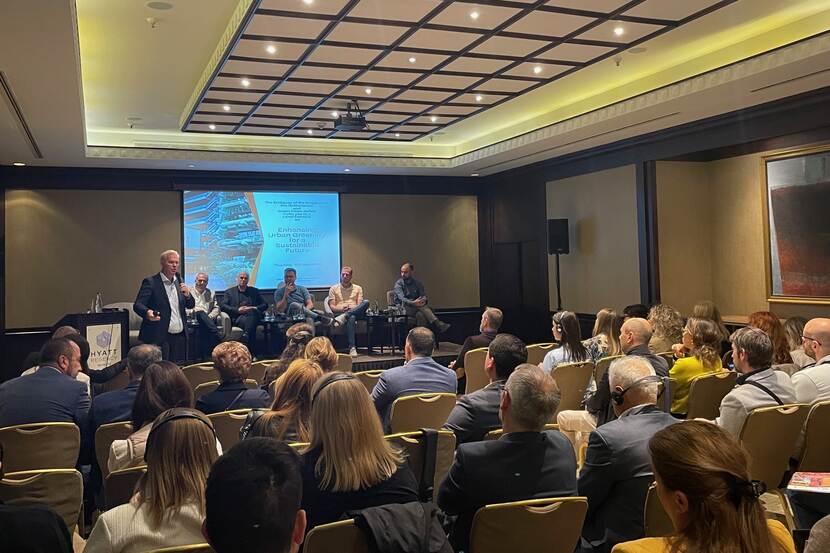Enhancing urban greening for a sustainable future in Serbia
The last event of the PIB Green Cities Serbia project brought together public as well as private sector stakeholders to talk about the future and the way forward for climate-resistant cities.

Last week, a final public event of the PIB Green Cities Serbia project took place. Serbian professionals from the public and private sectors attended the conference “Enhancing urban greening for a sustainable future”. With every second person living in a city, it’s fair to say that the future is urban. To ensure a climate-sound future, participants discussed the need to change behavioral patterns, among other topics.
The conference promoted the importance of a green environment in general and encouraged the audience to pay particular attention to greening urban areas. As city greening is much more than just planting trees and flowers, selected lecturers shared experiences of practical applications of green solutions in urban areas in the Netherlands, which could serve as inspiration for sharpening ideas on how to proceed in Serbia and how to adjust them to the local circumstances and conditions.
Mr. Paul Weidema, project manager behind the green transformation of the city of Alkmaar, explained what the driving force behind the city’s green transition was that earned the city the prestigious title of “European Green City”. Mr. Thom Aussems, the creative mind behind the Strijp S project in Eindhoven transforming a derelict industrial zone into a a vibrant new quarter, highlighted the challenges they faced during the transition process.
The project consortium members (Jub Holland; Okra ; Kennis Plants; Nophadrain; Sempergreen; Van den Berk ; Green Max) were part of a panel discussion highlighting practical ways for green solutions. An lively discussion and exchange of views followed the panel discussion.
The Green Cities Serbia project has been running for the last four years and will end in December 2024. Over this period the consortium members established excellent relations with public administration of cities of Belgrade, Novi Sad, Kraljevo and Nis and cooperated with the private sector to include green solutions in some landmark projects in Belgrade, such as the Sava Centar and Beogradjanka. In total around 500 m² of vertical gardens at different locations in Belgrade have been realized, with another 160 m² in the planning phase.